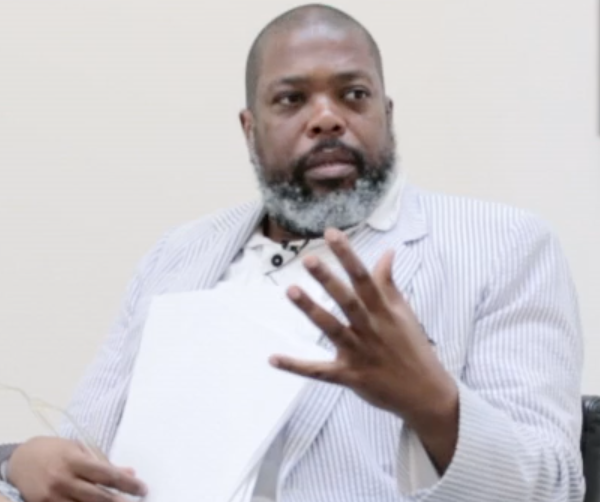 It’s not an overstatement to say Hilton Als is one of the most important cultural critics working today. The theater reviewer for The New Yorker, he also is the author of the essay collections The Women (1996) and White Girls (2013), both highly original takes on the intersection of class, gender, race, and sexuality.
It’s not an overstatement to say Hilton Als is one of the most important cultural critics working today. The theater reviewer for The New Yorker, he also is the author of the essay collections The Women (1996) and White Girls (2013), both highly original takes on the intersection of class, gender, race, and sexuality.
At Brooklyn’s packed Light Industry venue on July 16, he discussed author André Gide’s “Voyage au Congo,” a 1927 silent documentary that examines African “natives” with an appallingly detached curiosity. Als called it out with his characteristic mix of compassion and candor.
“This is a messed-up film,” he began, clad in a seersucker blazer and white bucks that put the resident hipsters to shame. “But it taught me not to look away.” He went on to discuss the abundant nudity in the film: “Gide had a lot of trouble with the black female body,” he said, and acknowledged the many other white male authors who had the same trouble, including poet Arthur Rimbaud. “Even educated people can be rude and ridiculous,” he said, and discussed recent instances in which colleagues and students had made nasty comments about his own physicality. (Als sometimes refers to himself as a “negress.”) “Perhaps this film would best be shown as a double feature with something by [black folksinger] Carole Walker. Perhaps cinema is not the best way to examine how black bodies have been treated.”
But he went on to say it is important that films like “Voyage au Congo” continue to be watched, so long as films made by people “in the margins” are watched as well. “We need to take in this material and change how it fits into our story and our society. As the world changes, this is our right and our responsibility.”
The applause from the usually too-cool-for-school audience was deafening.
